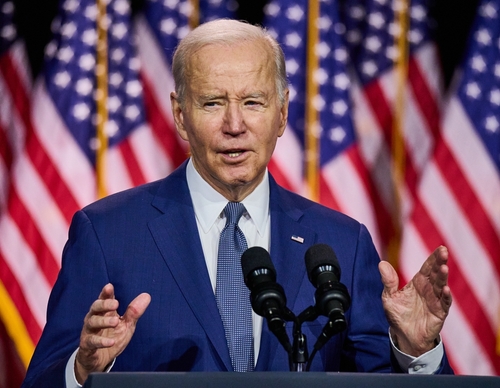
US Arms Boost Israel In Hamas Conflict
In a move that underscores the enduring alliance between the United States and Israel, Washington is set to enhance Israel’s military capabilities with a significant arms package. This development comes amid heightened tensions and ongoing hostilities in the Middle East, particularly in the Gaza region.
The Pentagon and State Department officials, speaking on the condition of anonymity, revealed this week to The Washington Post that the United States will supply Israel with 1,800 MK-84 2,000-pound bombs, 500 MK-82 500-pound bombs and 25 state-of-the-art F-35A fighter jets. This arms transfer, worth billions, was confirmed by two sources familiar with the matter and marked a pivotal moment in U.S.-Israel relations, reflecting a deep-seated commitment to Israel’s security and strategic advantage in the region.
Israel Will Get 2,000-Pound Bombs and 25 F-35s From U.S.https://t.co/ijrrr6BPc3
— PJ Media (@PJMedia_com) March 30, 2024
General Charles Q. Brown, Chairman of the Joint Chiefs of Staff, articulated the U.S.’s ongoing support for Israel at a Defense Writers Group event. “Although we’ve been supporting them with capability, they’ve not received everything they’ve asked for,” he stated, hinting at a careful balance maintained by the U.S. in its military aid to Israel. This latest package follows a historical pattern of substantial U.S. military assistance to Israel, which includes an annual $3.8 billion in aid.
The decision to bolster Israel’s military arsenal comes at a critical juncture. Israel faces strong international criticism over its operations in Gaza, where the conflict has led to significant casualties and humanitarian concerns. Israeli Minister of Defence Yoav Gallant’s recent visit to Washington, where discussions on Israel’s weapons needs took place, underscores the strategic dialogue and cooperation between the two nations.
This arms transfer, however, is not without its detractors. Some Democrats in Congress and Arab-American groups have urged the Biden administration to leverage military aid to Israel, calling for more restraint and a focus on humanitarian concerns in Gaza. Yet, the administration has remained steadfast in its support. “We have continued to support Israel’s right to defend itself. Conditioning aid has not been our policy,” a White House official told reporters.
The international and domestic political ramifications of this arms deal are significant. Against calls for a ceasefire in Gaza and concerns over the humanitarian situation, the U.S.’s decision to abstain from a recent United Nations Security Council resolution calling for a ceasefire illustrates the complexity of the situation. This abstention, coupled with the arms transfer, signals a nuanced approach by the Biden administration, attempting to balance diplomatic pressures with strategic alliances.
In the broader geopolitical landscape, the enhancement of Israel’s military capabilities serves as a reminder of the United States’ commitment to ensuring the security of its allies. While the immediate focus is on the conflict in Gaza, the implications of this arms deal extend beyond the current crisis, reinforcing Israel’s qualitative military edge in a volatile region.
The U.S.’s decision to provide Israel with an advanced arms package places the Biden administration in a delicate position as it navigates international calls for peace and responds to liberal domestic pressures.